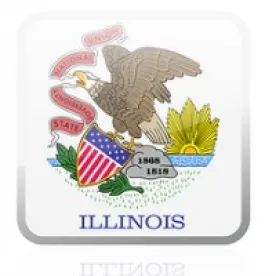On March 20, 2020, Illinois Governor J.B. Pritzker issued a mandatory “Stay-at-Home” Order, located here, directing all Illinois residents to stay home or at their place of residence. The Order takes effect beginning Saturday, March 21, 2020 at 5:00 p.m. CDT and will last through Tuesday, April 7, 2020. Under this Order, all public and private gatherings occurring outside a single household or living unit are prohibited. Following current guidance from the CDC, the Order prohibits any gathering of more than 10 people unless otherwise exempted. Further, all places of public amusement, whether indoors or outdoors, must now be closed to the public during the pendency of the Order.
The Order further requires all non-essential business and operations to cease activity as of Saturday, March 21. However, as with the recent restrictions in California and other states, the Order permits those employers in “Essential Infrastructure” and “Essential Businesses” to continue operations.
Some “Essential Infrastructure” and “Essential Businesses” under this Order include the following:
| Essential Merchants | Human Services | Governmental Functions | Health Services | Essential Infrastructure |
| Stores that sell groceries and medicine | Long-term care facilities | Governmental entities, such as police and fire departments | Pharmacies | Construction |
| Restaurants for consumption off-premises | Residential settings and shelters | Educational institutions in order to facilitate distance learning | Home-based care and services | Waste and recycling collection and removal |
| Gas stations and businesses needed for transportation | Transitional facilities | Mail, post, shipping, logistics, delivery, and pick-up services | Healthcare and public health operations | Airport operations, taxis, Uber/Lyft |
| Hardware and supply stores | Day care centers for exempted employees | Child protection and child welfare personnel | Hospitals and clinics | Operation and maintenance of utilities |
| Hotels and motels | Rehabilitation facilities | Court personnel | Medical cannabis dispensaries | Railroads and public transportation |
| Food, beverage, and cannabis production and agriculture | Businesses that provide food, shelter, and other necessities for economically disadvantaged individuals | First responders, emergency dispatchers, and emergency management personnel. | Biotechnology companies | Oil and biofuel refining |
If any business does not qualify as an Essential Business or Essential Infrastructure, it may only operate “Minimum Basic Operations,” which includes the minimum requirements to assist employees working remotely, to ensure payroll and benefits continue without interruption, to maintain the value of a business’s inventory, and/or to preserve the condition of a business’s plant and equipment.
The Order does not contain any penalties for non-compliance for Illinois residents or Illinois businesses. The Order allows Illinois residents to leave their home for essential activities such as for food, gas, prescriptions, and healthcare. Illinois residents may also leave their homes for outdoor activities such as walking, hiking, running or biking, including going to public parks and outdoor recreation areas (except playgrounds).
Notably, the Order further requires Essential Businesses to take certain proactive measures in order to assure social distancing practices are met and followed within the workplace, including where possible: (i) designating with signage, tape, or by other means six-foot spacing for employees and customers in line; (ii) making hand sanitizer and other sanitizing products readily available for employees and customers; (iii) implementing separate operating hours for elderly and vulnerable customers; and (iv) posting online whether a facility is open and how best to reach the facility and continue services by phone or remotely.
Additional guidance on the Order from the Governor’s office may be found here. The Order provides no further guidance to employers regarding other developing issues such as WARN Act notices, sick leave, or the newly enacted federal Families First Coronavirus Act.





 />i
/>i

